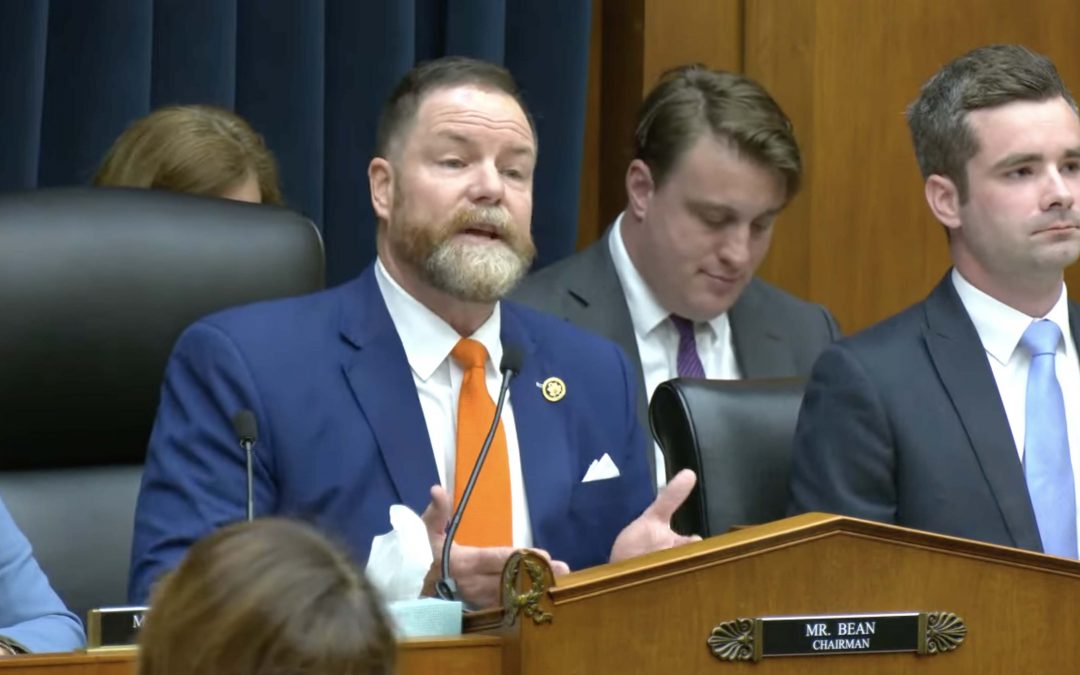K-12 public school leaders from New York, Maryland and California on Wednesday morning denied congressional accusations that they’ve inadequately addressed and prevented anti-Semitism on campus.
The two-hour hearing, held by the House Subcommittee on Early Childhood, Elementary, and Secondary Education, attempted to clarify specific disciplinary actions taken by these districts as well as educational programs surrounding Jewish history and combating anti-Semitism.
This hearing is the first that questions K-12 public school districts about anti-Semitism since the Hamas terror attack in Israel on Oct. 7.
“The Holocaust ended in 1945; the hate behind it has not,” opened Chairman and Rep. Aaron Bean, R-Fla., who called the topic of the hearing “particularly troubling” and claimed that anti-Semitism was a “dominate force in our K-12 schools.”
“Kids as young as second graders are spewing Nazi propaganda which begs the question: who has positioned these young minds to attack the Jewish people?” said Rep. Bean.
New York schools Chancellor David C. Banks, Berkeley Unified School District Superintendent Enikia Ford Morthel and Montgomery County, Maryland Board of Education President Karla Silvestre testified alongside American Civil Liberties Union Senior Staff Attorney Emerson Sykes. All three school districts have sizable Jewish populations.
The leaders testified that disciplinary action had been taken against multiple faculty and students involved in anti-Semitic incidents, but only Banks confirmed that teachers have been fired.
The committee put a focus on a November incident at Hillcrest High School in Queens, NY, where a Jewish teacher was trapped inside their classroom for over two hours as a mob of students stormed the building demanding their resignation.
Many representatives took issue with the fact that the New York Department of Education still employs the school’s principal in a non-teaching position.
Banks and Rep. Brandon Williams, R-Texas, at one point, engaged in a shouting match for almost two minutes over the issue. “How can Jewish students feel safe at New York City public schools when you can’t even manage to terminate the principle of ‘Open Season on Jews High School,’ or even endorse suspension of student harassments?” accused Williams. “How can Jewish students go to school knowing that he is still on your payroll?”
Rep. Elise Stefanik, R-N.Y., who has been a fiery critic of educators’ responses to anti-Semitism, added, “That’s concerning to me that you have him in a senior position. And what’s very concerning about these hearings is that we’re getting lip service, but a lack of enforcement, a lack of accountability.”
Banks was also questioned about the Qatar Foundation International’s influence on New York’s public school teaching materials, as the regime has donated over $1 million since 2019. He testified that while “They write the check, they’ve had no impact on the curriculum that’s been developed and how it’s been implemented.”
Bean previously cast the session as attempting to hold “leaders of the most embattled school districts accountable for their failure to keep Jewish students and teachers safe.” But while there were moments of tense and passionate exchanges, Banks, Ford Morthel and Silvestre left the hearing relatively unscathed compared to the university presidents who received widespread condemnation after testifying in December that calling for the elimination of the Jewish people was only anti-Semitic depending on context.
In his closing remarks, Bean remarked about the hearing that “Hopefully it’s not only a wakeup call for your school districts, but to everybody that’s watching across America.”

